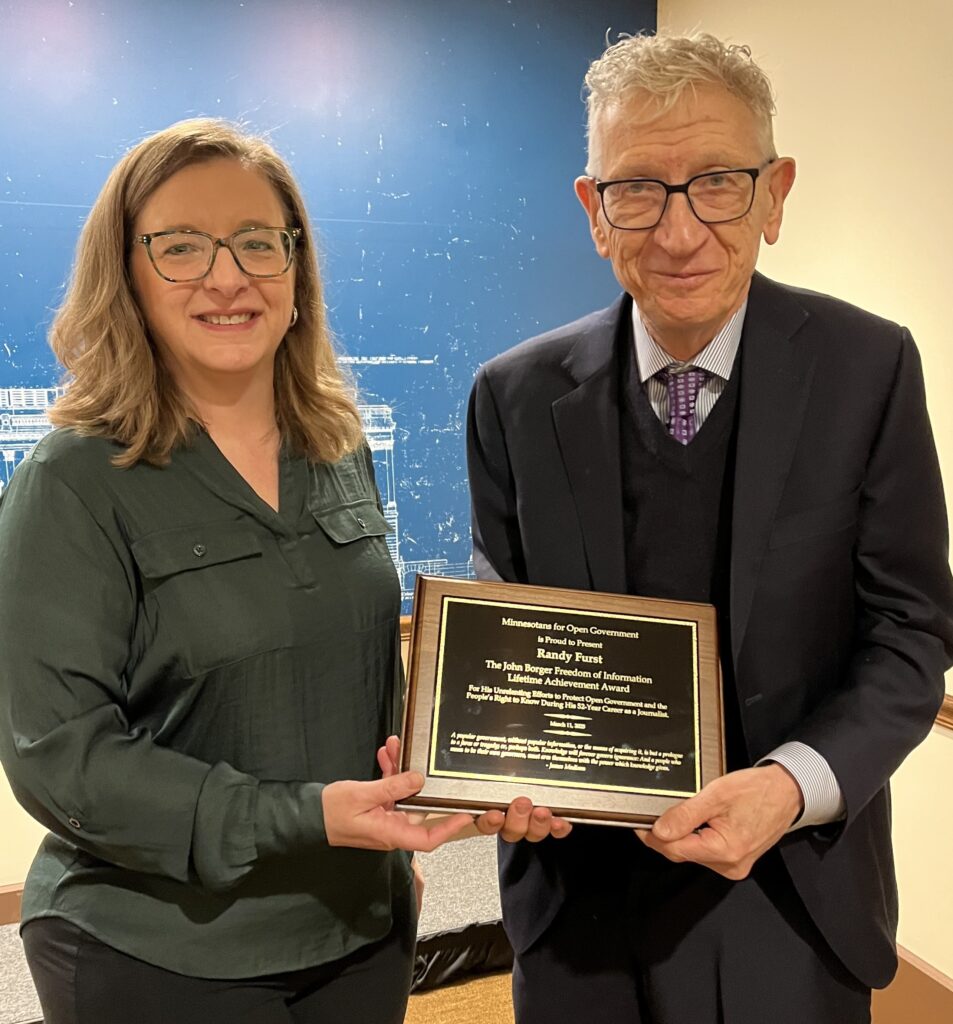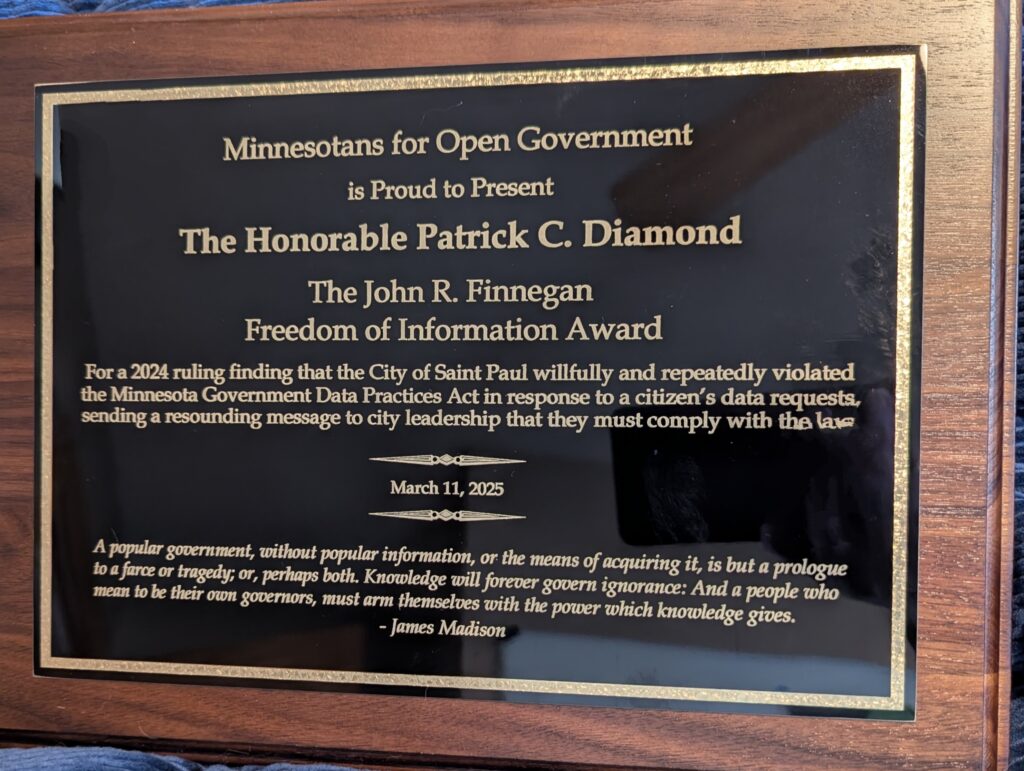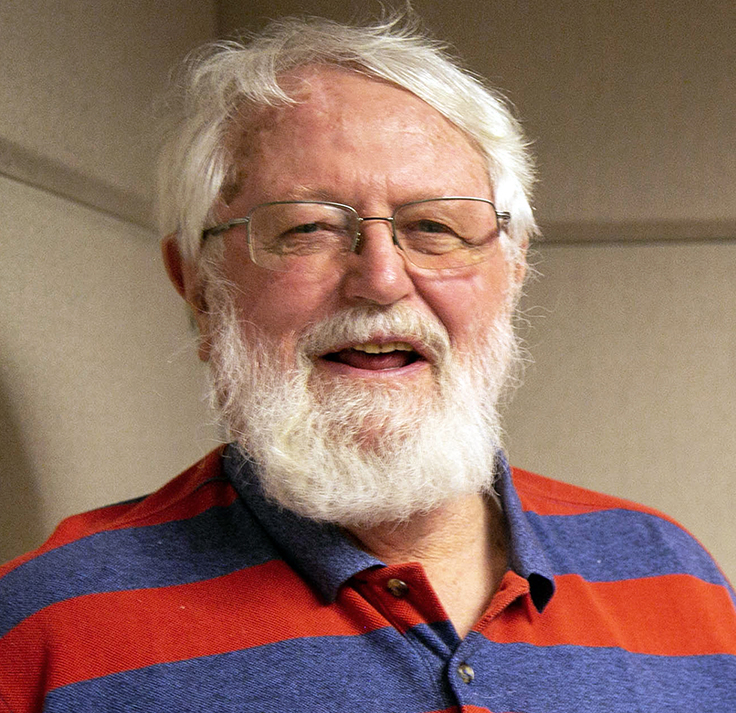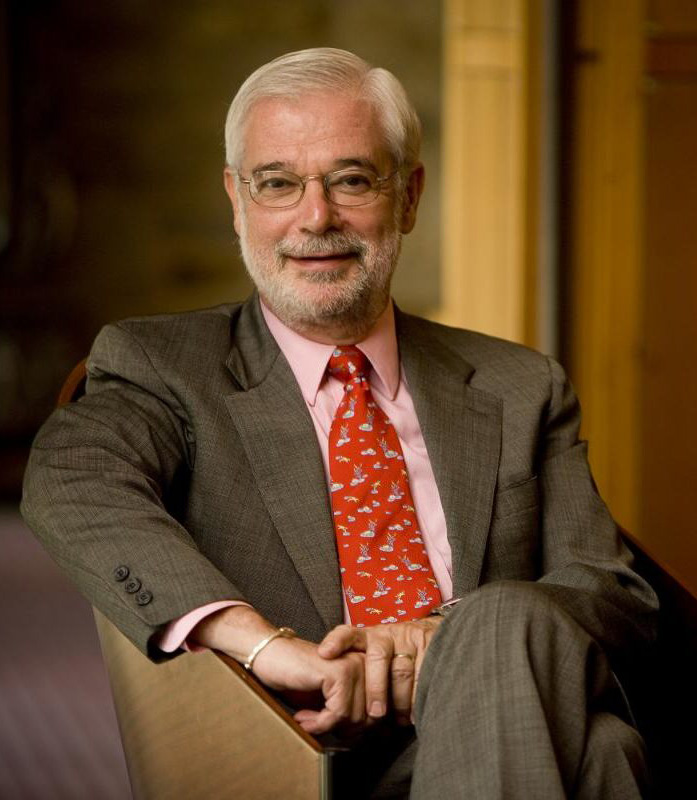MNCOGI v. City of Minneapolis data lawsuit
On May 29th, 2024, MNCOGI filed its brief for partial summary judgment in a long-running Data Practices lawsuit against the City of Minneapolis. In 2021, MNCOGI submitted a Data Practices Act request that sought multiple categories of records related to the use of “coaching” by the Minneapolis Police Department (MPD). In response to this request, the City categorically denied access to all such records.
MNCOGI then filed suit, contending that the records were wrongfully withheld — including because coaching is, at least sometimes, being used as a form of disciplinary action within the MPD, and documents related to disciplinary action should be publicly available.
Final disciplinary data is “public”
Under the Minnesota Government Data Practices Act (MGDPA), personnel data documenting “the final disposition of any disciplinary action” is public government data. According to the City, however, so-called “coaching”—the most common consequence when an MPD employee is found to have engaged in misconduct—is not discipline in any circumstance, and therefore such records are “private” personnel data.
The City has stated that coaching is only used to address the lowest category of infractions (known as “A-level violations”). However, MNCOGI’s summary judgment brief explains how the MPD has imposed “coaching” even after finding more serious violations of MPD policy—those classified as “B-level” and above. This is despite the City’s own statements that such violations are ineligible for coaching, and despite the MPD’s own Discipline Matrix prescribing various forms of discipline—not coaching—as the baseline consequence for such violations.
Discovery revealed that MPD has disciplined officers and called it coaching
Over the past three years, MNCOGI has been engaged in the discovery process — conducting depositions, and serving interrogatories and document requests as part of its lawsuit. Through that process, MNCOGI has unearthed overwhelming evidence showing that:
1. The City has issued coaching for “B-level” violations and possibly higher — violations which the City and Minneapolis Police Federation consider disciplinary (and thus should trigger data disclosure under the MGDPA when they become final);
2. The Chief of the MPD has issued coaching letters that describe coaching as discipline;
3. Some coaching letters have been maintained in officers’ personnel files, indicating their disciplinary nature;
4. The Minneapolis Police Federation has grieved coaching when MPD has assigned it for “B-level” violations, due to the disciplinary nature of that action.
Despite all of this, responsive data related to these matters was never disclosed to MNCOGI. In addition, the City possesses numerous policy documents that discuss how coaching is used, and which fall within the scope of MNCOGI’s request; but it failed to disclose any of them. In fact, evidence shows that the City summarily closed MNCOGI’s data request in three minutes, without searching for any responsive data.
Brief asks court to find for MNCOGI
In short, the City’s assertions — that “coaching” is never discipline, and that the MPD does not impose coaching for anything beyond the lowest (“A-level”) violations — are simply not true. In fact, coaching has repeatedly been imposed for disciplinary B-level violations; and yet the City has not disclosed associated records as required by the MGDPA. In fact, the City disclosed no records to MNCOGI whatsoever, despite maintaining substantial amounts of responsive data.
Accordingly, MNCOGI has asked the court to resolve the case in its favor (as it pertains to document disclosure), and to preserve certain other issues (such as damages) for trial.
All of these findings are referenced in MNCOGI’s summary judgment brief, which can be read here.
Read more documents in the MNCOGI v. City of Minneapolis lawsuit on our litigation documents page.




